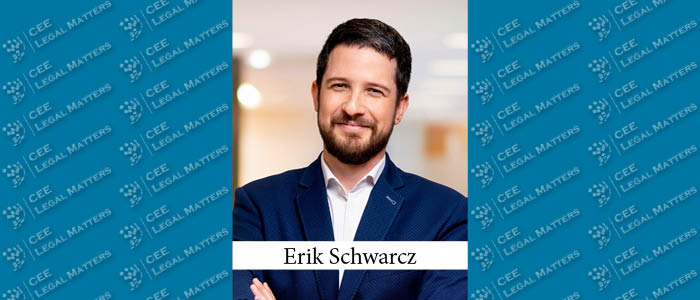With a new Minister of Social Affairs aiming to tighten controls on self-employment practices, businesses and legal professionals are left grappling with unclear guidelines and significant risks, according to Fairsquare Partner Erik Schwarcz.
"The hot topic right now in Slovakia is employment law, specifically the boundaries between self-employment and traditional employment," Schwarcz begins. "Our new Minister of Social Affairs is pushing an agenda focused on stricter checks and controls to ensure that self-employment is used appropriately, meaning that people classified as self-employed are genuine entrepreneurs and not in roles that should be covered by employment contracts. We receive numerous inquiries every week because the line between what constitutes self-employment and employment is quite thin, and there are no clear guidelines from the government," he explains.
Focusing on the issue's particular significance at this moment, Schwarcz explains that "the consequences of breaching the law in this area are enormous. From the government's perspective, what might seem like legitimate self-employment could actually be a hidden employment relationship. This not only has implications for the employer but also for the self-employed individuals who might later claim the benefits they would have received as regular employees, such as health insurance, paid leave, and job security." According to Schwarcz, the problem is widespread, especially in sectors like automotive manufacturing, where it's common to see workers registered as self-employed.
Continuing, Schwarcz says that this renewed focus on employment classifications started "with our new Ministry of Social Affairs, which early this year declared this as a key issue they would target. However, the government has yet to provide any clear guidelines on how they plan to address it." Schwarcz reports that many companies, including some of Slovakia’s largest, are now worried because there’s still a lot of uncertainty about how these regulations will be enforced. "We expect the government to begin inspections in the coming months, particularly in large companies, but so far, no raids have been confirmed. There is also the risk of backlash, especially against Slovakia’s national champions in the automotive sector."
Schwarcz believes that, in order to address this issue effectively, "the government needs to establish clear guidelines – essentially, a checklist that outlines the criteria distinguishing employment from self-employment. It's challenging for individuals and companies to assess these conditions themselves without proper guidance. Having transparent rules would help reduce the risks for businesses and ensure that individuals are correctly classified."
Additionally, Schwarcz reports that, recently, "there have been substantial changes to the criminal code, particularly regarding the statute of limitations for certain criminal acts. It’s a politically sensitive topic; some see it as a necessary modernization, while others argue it was designed to influence ongoing investigations." According to him, even the Constitutional Court has been involved in these discussions. "Additionally, there have been minor adjustments in public procurement laws and some shifts in the energy sector to promote green energy, and ongoing discussion about new construction law," Schwarcz reports.
















